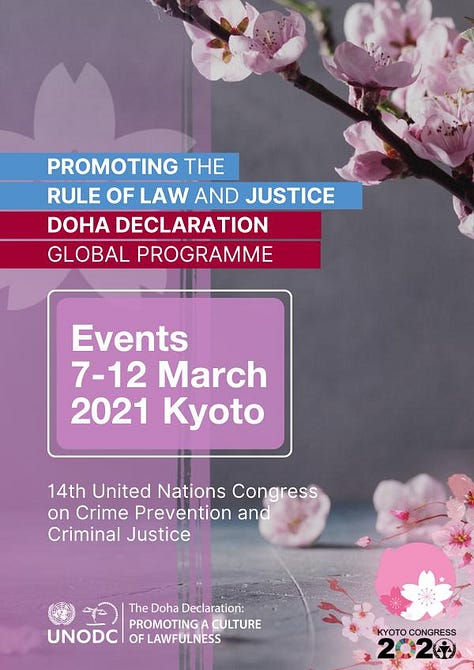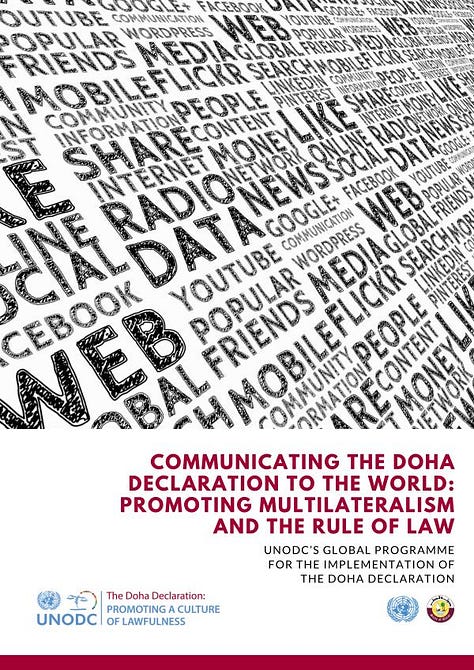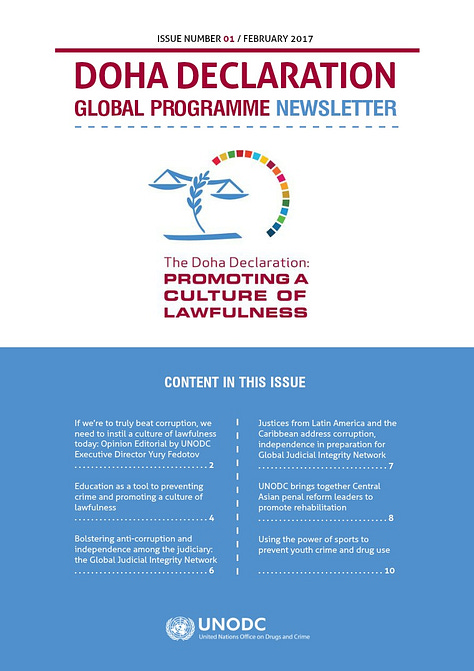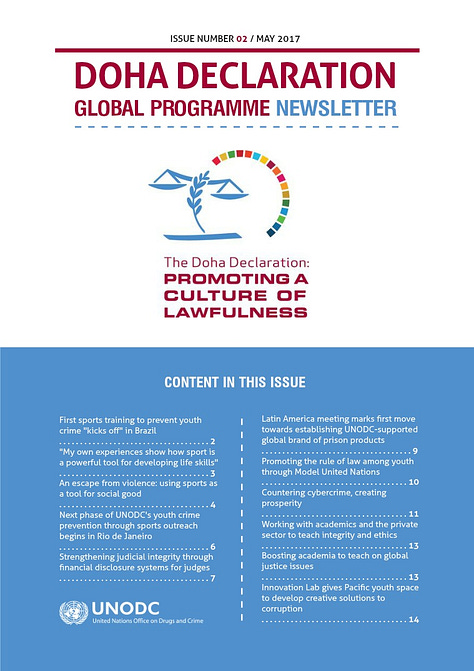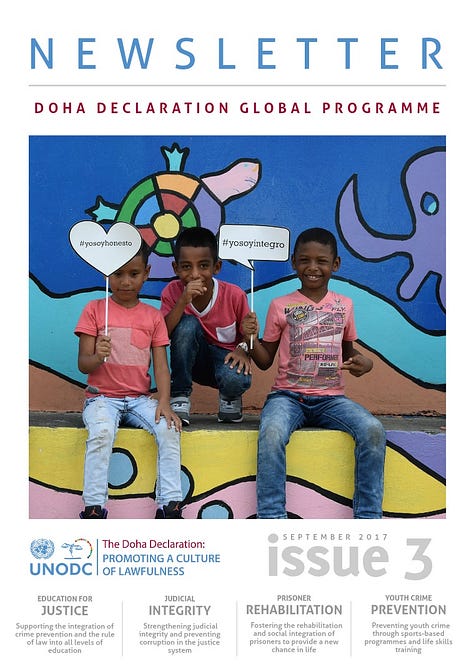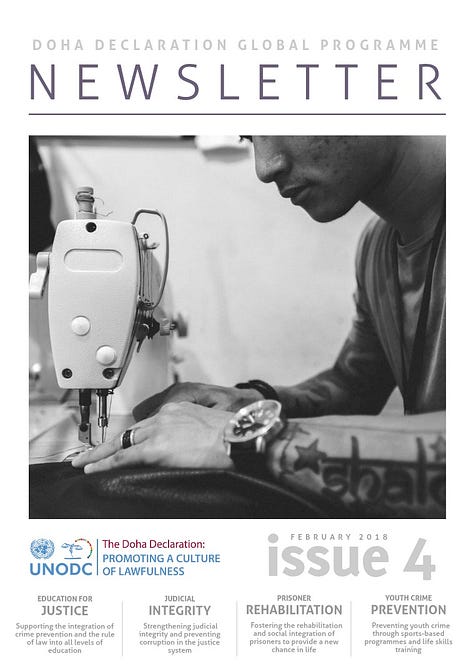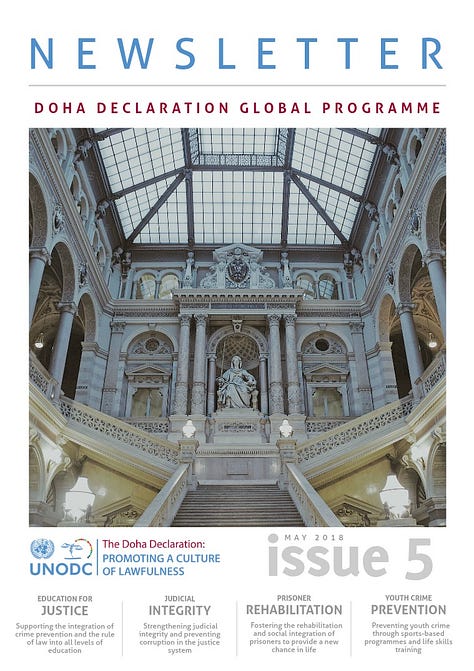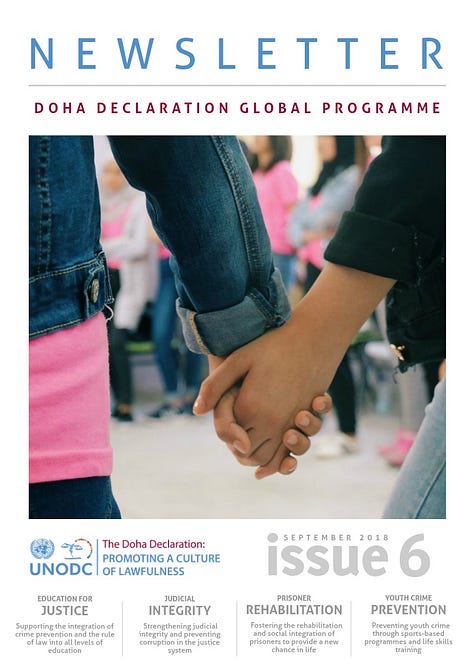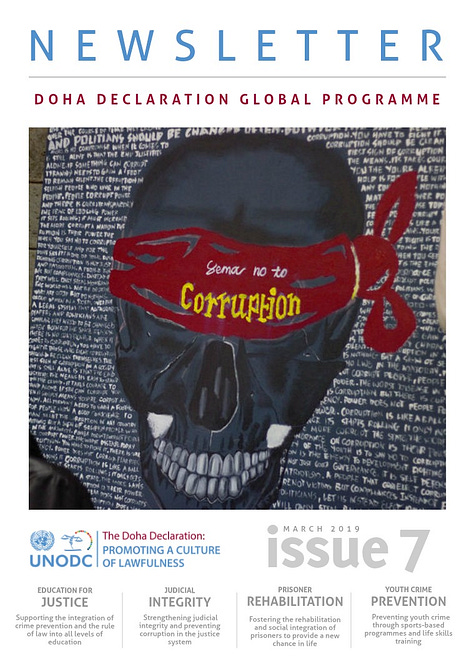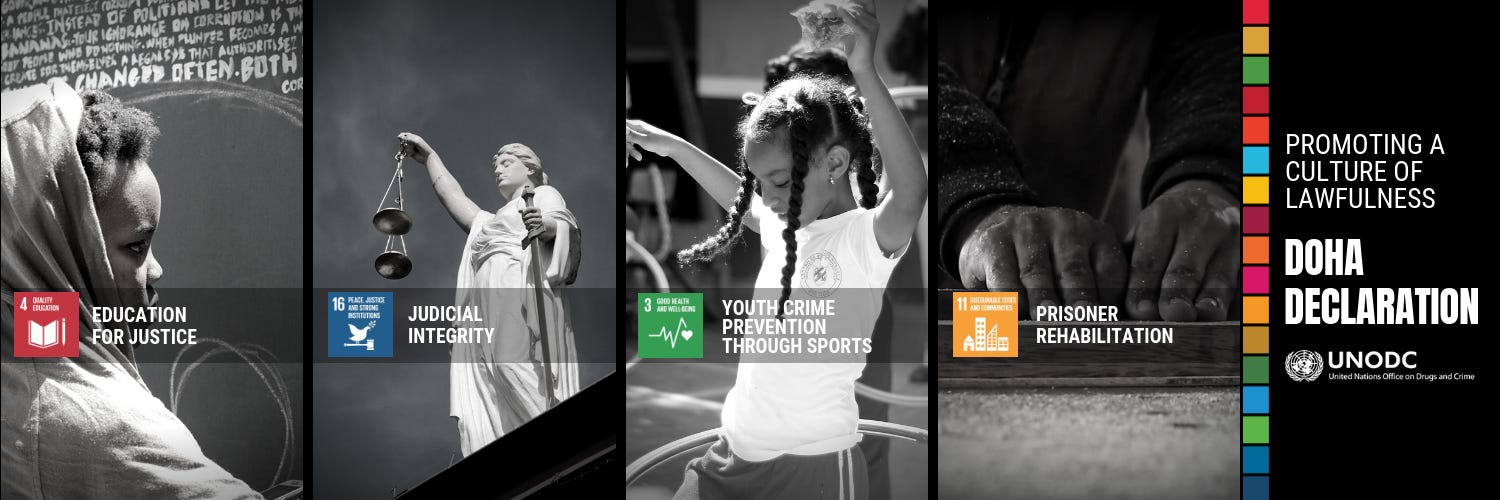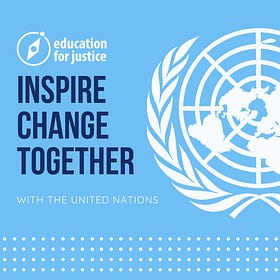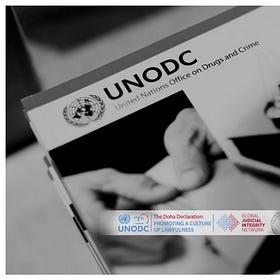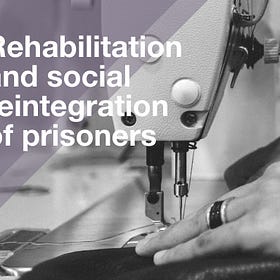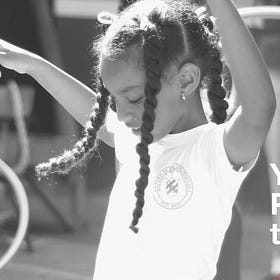UNODC Global Programme
Spread the word, promote the work, and expand the impact of the Doha Declaration
I oversaw the print and digital media activities of UNODC’s largest five-year global programme (Doha Declaration) where I was responsible for various campaigns and events by developing branding items, media packs and outreaching for partnership and collaboration with NGOs, UN entities, academia, and private sector.
Brief & idea.
To promote peace, justice and the rule of law worldwide, UNODC launched the Doha Declaration Global Programme in March 2016 and concluded in September 2021. The programme focused on four interrelated components: enhancing quality education for children and youth on the rule of law through its “Education for Justice” (E4J) initiative; strengthening judicial integrity and preventing corruption in the justice system; fostering prisoner rehabilitation and social reintegration; and preventing youth crime through sports.
Education for Justice
Contributing to the sustainable development goal (SDG) 4 – Quality Education, the Education for Justice (E4J) initiative designs education activities for primary, secondary and tertiary levels to help educators teach the next generation to better understand the rule of law issues.
Judicial Integrity
Effective, transparent and corruption-resistant public institutions boost confidence and form the core of good governance. The Judicial Integrity initiative assisted judiciaries in strengthening judicial integrity and preventing corruption in the justice sector.
Prisoner Rehabilitation
Rehabilitation programmes in prisons are key to protecting society from crime and reducing recidivism. Crucial to this is for prisoners to be prepared for their release and successful reintegration into society through prison-based programmes and post-release support.
Youth Crime Prevention through Sports
Youth face many challenges that make them vulnerable to crime, violence and victimization. Using sports to provide positive experiences and support healthy development in young people, UNODC worked to build important life skills that increased adaptive and positive behaviour among at-risk youth so that they can positively contribute to society.
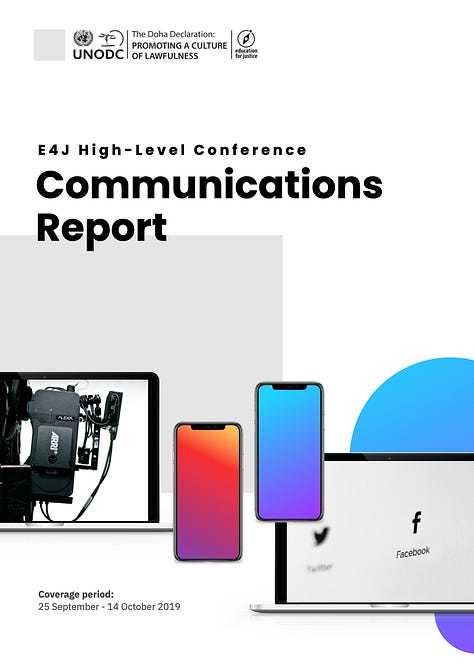
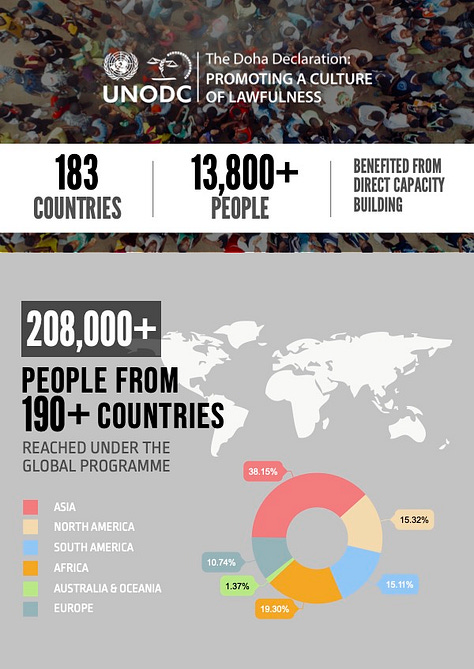
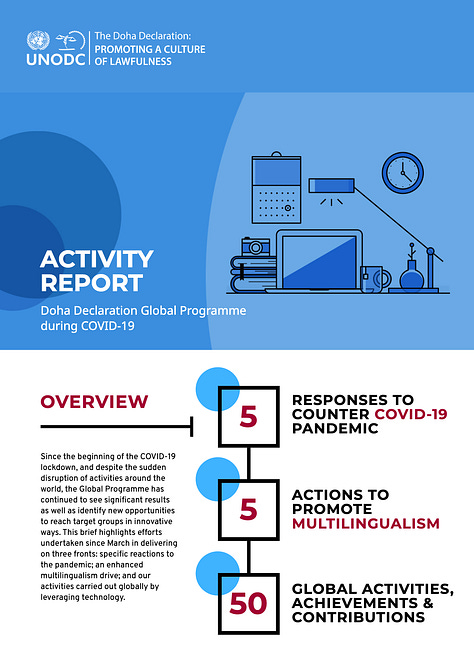
Result.
I adopted a proactive and innovative approach for designing and delivering the overall communication tools, from digital campaigns to print products and from external outreach to internal training workshops. These efforts not only promoted the technical work of UNODC but also generated extensive impact, which was identified both quantitatively and qualitatively. Some of the figures were included in the final Advocacy Report that I produced for the Office, which provided a glimpse of the outcome between 2016 and 2020: 2.1 million people reached in 190+ countries, 23.6 million web views, 13.2 million social media reach, 980 media mentions in 77 countries, and 200,000+ branded products distributed.
During my assignment, I regularly produced infographic reports on the performance of communication and outreach efforts. This included monthly public information reports, periodic updates on the global programme, and reports on individual events and campaigns.
